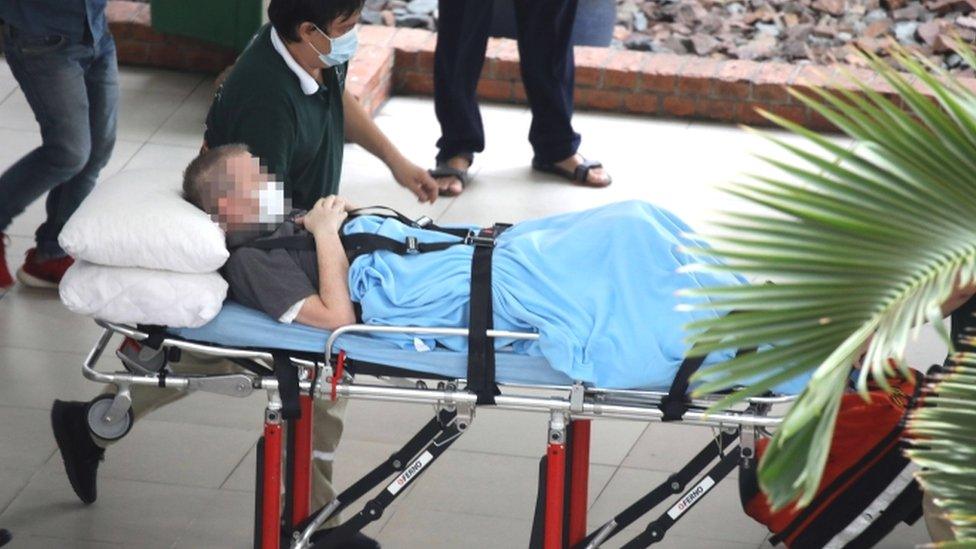Coronavirus: Vietnam coma pilot warns people 'not to be blasé'
- Published
Scottish pilot Stephen Cameron spent 10 weeks in a coma in Vietnam
A Scottish pilot, who spent more than two months on a ventilator in Vietnam, has warned Britons "not to be blasé about coronavirus" as lockdown eases.
Stephen Cameron, 42, from Motherwell, was Vietnam's sickest patient and became known nationwide as Patient 91.
"I'm a living example of what this virus can do and how it is serious," he told the BBC from his Wishaw hospital bed.
His doctors say he now faces "a long path" to recovery,
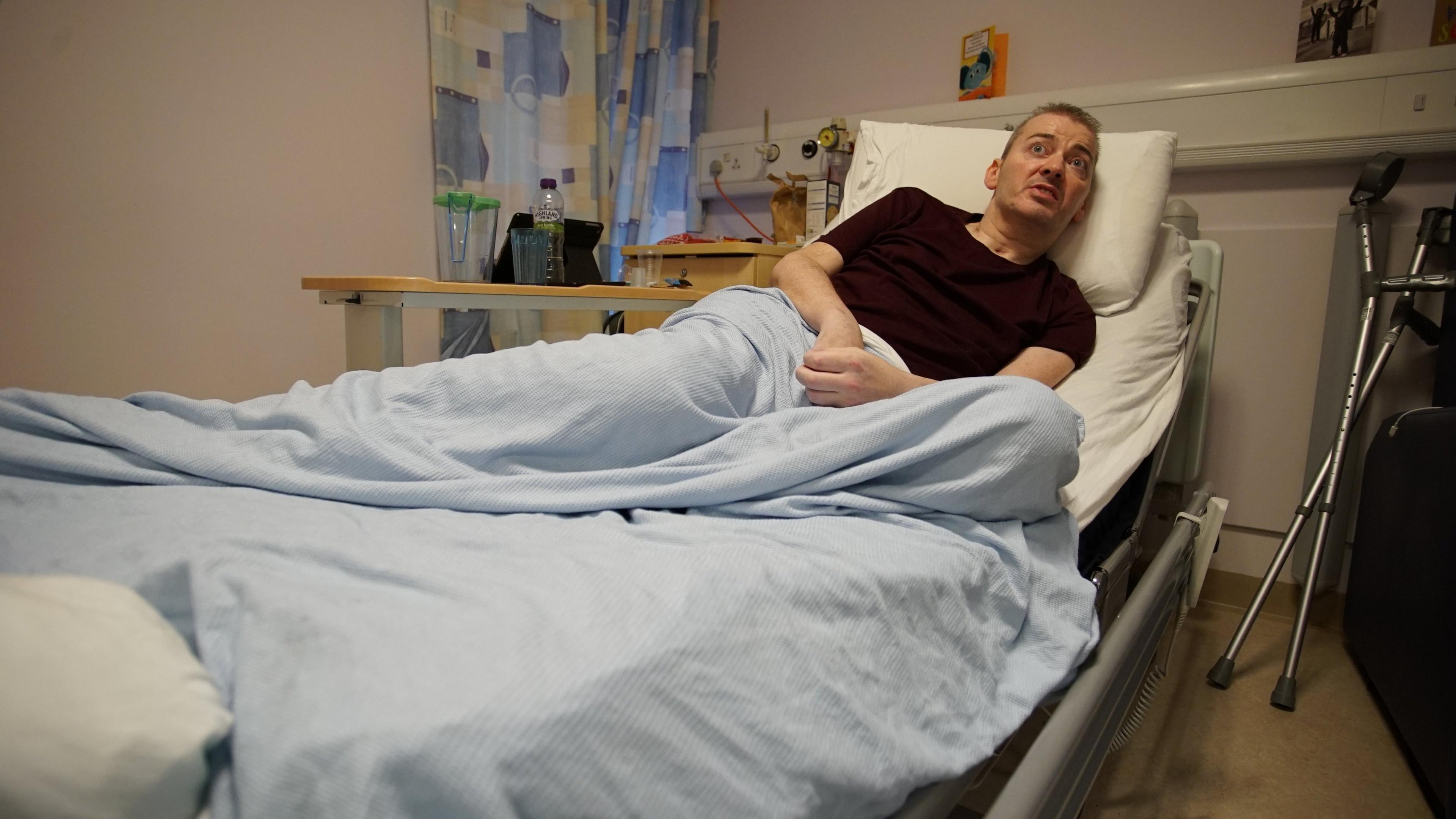
Stephen Cameron is recovering in the University Hospital Wishaw near Glasgow
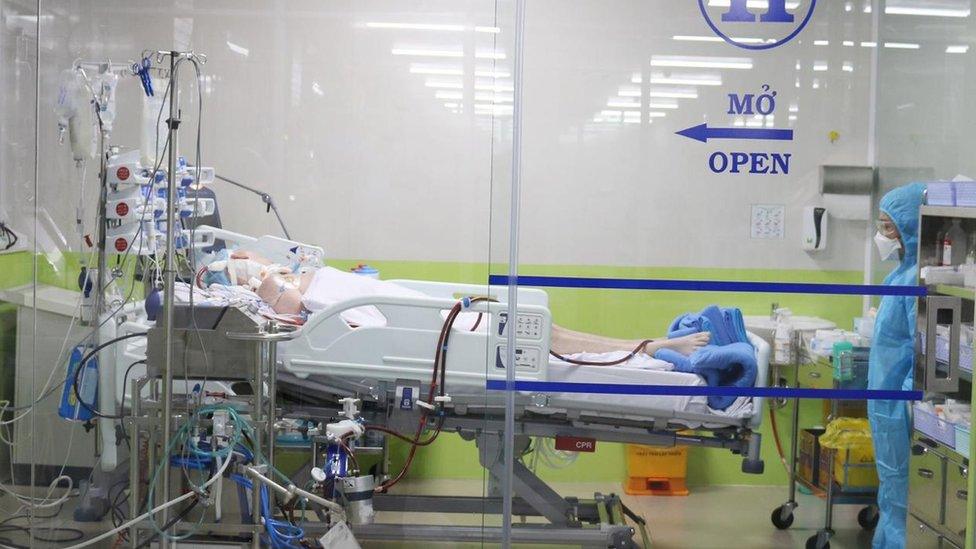
Mr Cameron was put into a medically-induced coma
Dr Manish Patel, the respiratory consultant has been responsible for Mr Cameron's care since his return to Scotland on 12 July.
"People say going into ITU is like running a marathon. In Stephen's case, I think he's run multiple ultra-marathons," he said.
Mr Cameron said: "I don't think the NHS could cope if there was a wave of people who needed the amount of care and life support that I needed."
'Asia's sickest patient'
The pilot spent 68 days on a ventilator - most of which he was also reliant on an Ecmo machine, a form of life support only used in the most extreme cases.
"I've been told that I was Asia's sickest patient for a period," he said. "And that because of the things they learnt from me, Vietnam's doctors were able to employ that knowledge on patients in a similar position."
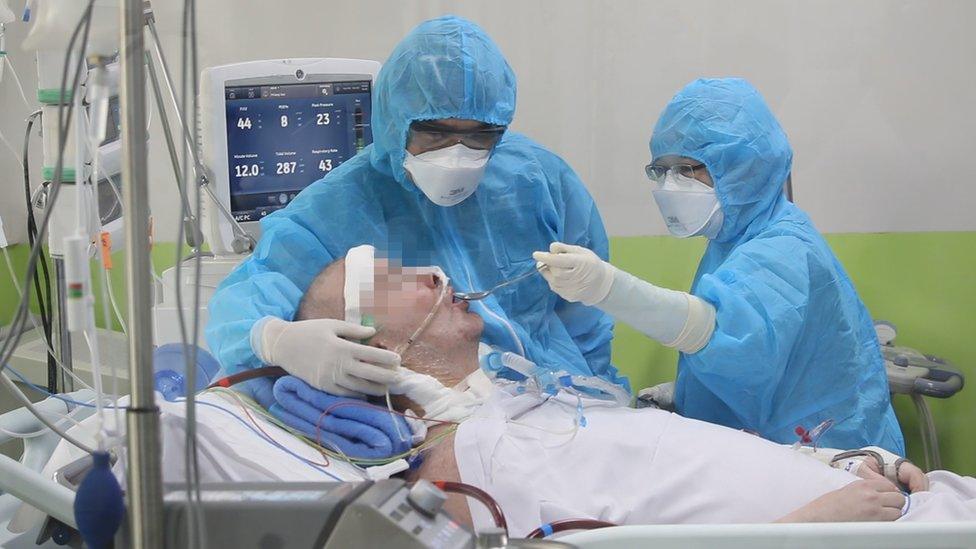
Mr Cameron narrowly avoided a double lung transplant when his lung capacity fell to 10%
Dr Patel told the BBC that Mr Cameron surviving such a long time in a medically-induced coma was "exceptional".
"We don't have much experience of people being on a ventilator for more than a month and a half," he said.
According to data from the Scottish Intensive Care Society, three-quarters of Covid-19 survivors stay in intensive care for under 21 days, and are ventilated for an even shorter period of time.
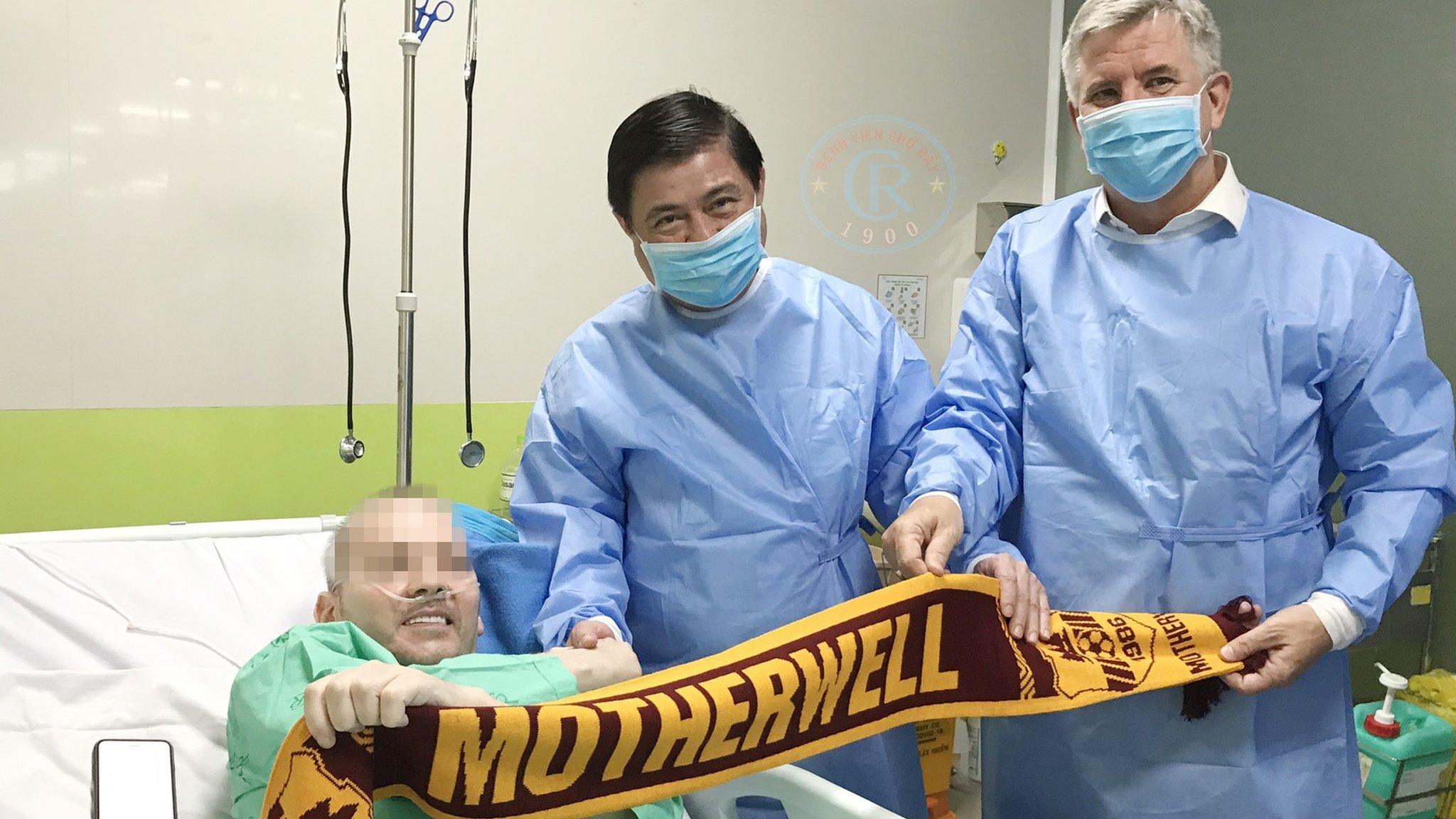
Stephen Cameron with the British consul general Ian Gibbons and the chairman of Ho Chi Minh City's People's Committee Nguyen Thanh Phong
Mr Cameron narrowly avoided a double lung transplant when his lung capacity fell to 10%. He also suffered multiple organ failure and lost 30kg (4.7 stone) in weight while in a coma, and is still struggling to walk despite extensive rehab.
"When I first woke up, I thought, will I be able to walk again?," he said.
"I didn't know if I was paralysed for life because I couldn't feel my feet and I wasn't sure if that was the end of my flying career."
Mr Cameron's aim is to pilot a plane again by "early next year". But his rehab will be long and arduous, and his job security has been thrown into doubt by the devastating effects the pandemic has wrought on the Asian air travel industry.
No Covid-19 deaths
He came closer to dying of coronavirus than anyone else in Vietnam, which has had under 10 ICU admissions and fewer than 500 confirmed cases.
The effort to keep him alive and avoid a single death from the virus in a country of 95 million people meant all Vietnam's best ICU doctors were involved in his care, and his story made headlines in national newspapers and led TV news bulletins.
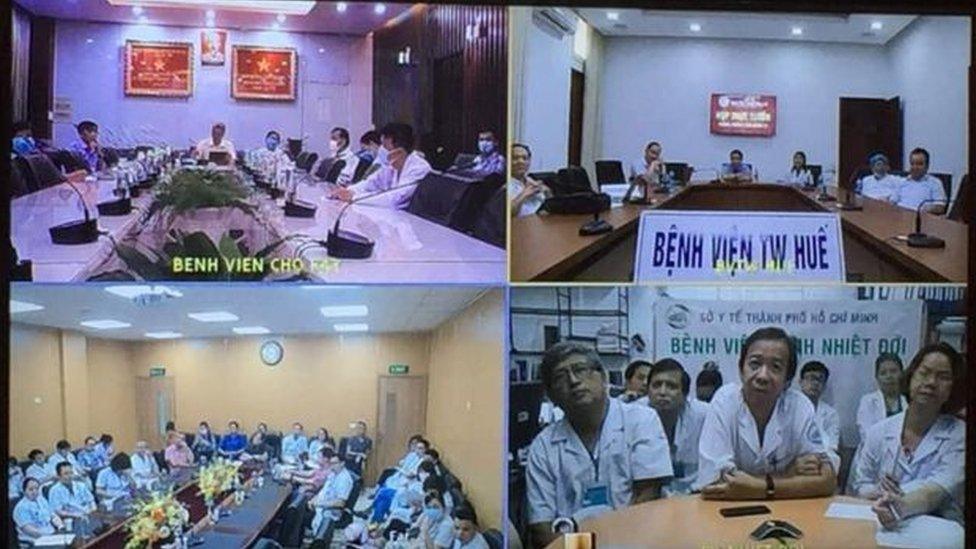
Doctors from hospitals across Vietnam discussed Mr Cameron's condition
"The vast majority of the country knew about Patient 91, which was my moniker," he said.
"On their equivalent of the 10 o'clock news, they had somebody with my X-rays, my CT scans, my stats, and actually talking through them in maybe a five-minute segment.
"I mean that is a bit mind-blowing when you think about it."
Hundreds of press and members of the public watched Mr Cameron's departure from hospital in Ho Chi Minh City a fortnight ago.
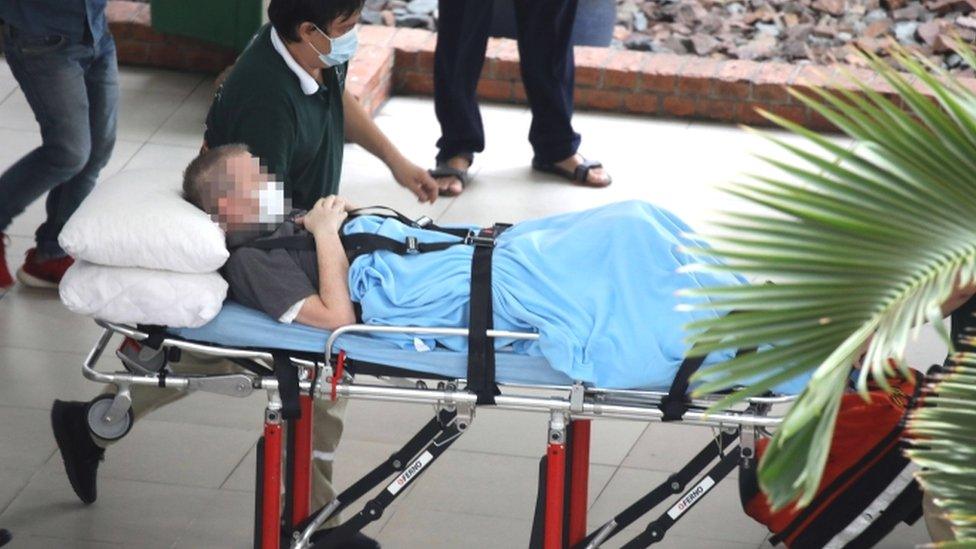
Stephen Cameron was released from hospital a fortnight ago
When he first fell ill at an expat bar, which was the site of southern Vietnam's biggest outbreak, his case caused controversy as there was speculation he was the source of the outbreak.
"There seemed to be a desire to pin it on me coming from abroad, as I did a visa run to Bangkok a week earlier," he told the BBC in June, when he was still in Vietnam.
"I was the first person to put my hands up and say: 'Look I don't feel well'. It was inevitable I would be blamed."
Since Mr Cameron's return to the UK, British Foreign Secretary Dominic Raab has thanked his counterpart in Vietnam, external, Foreign Minister Pham Binh Minh, for the treatment of the 20 British Covid-19 patients in the country, including Mr Cameron.
- Published27 June 2020
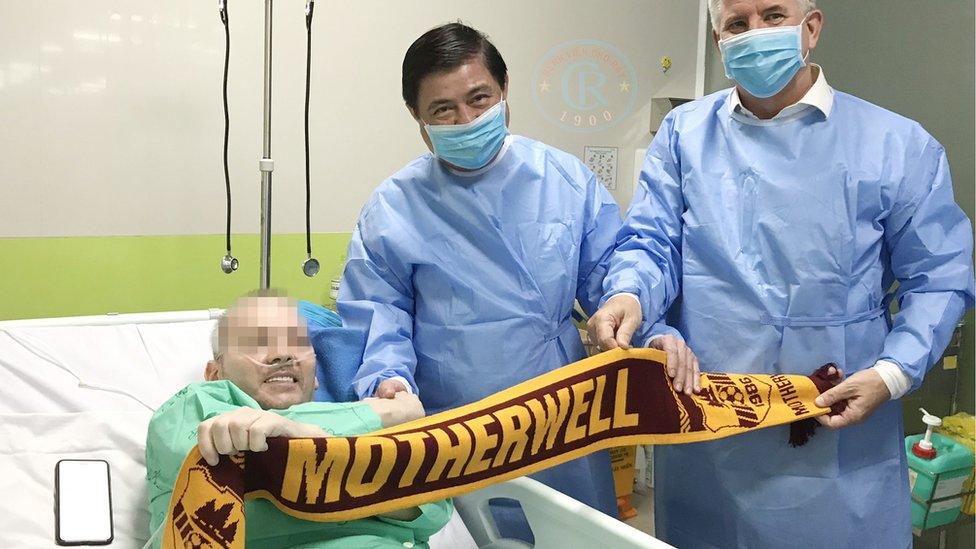
- Published12 July 2020
